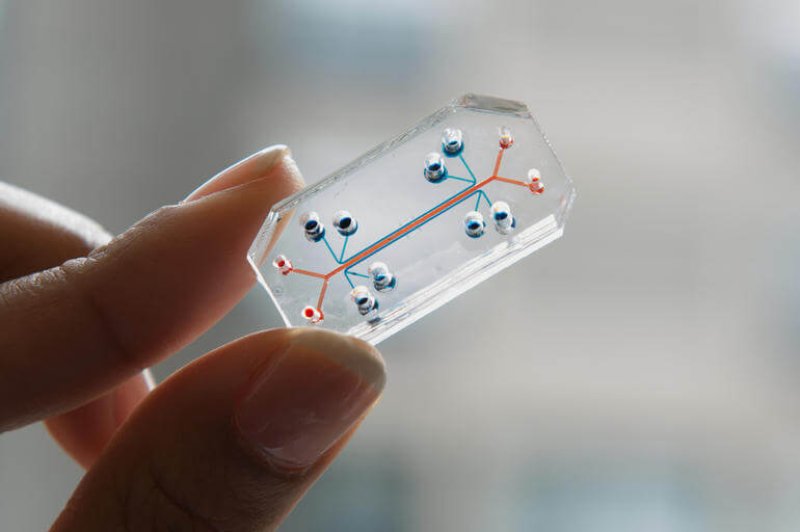Bringing a new drug to market takes roughly a decade and requires expensive and arduous testing on humans and animals. But a new technology developed at the Massachusetts Institute of Technology aims to cut that time by half and perhaps replace animal testing entirely. The device, roughly the size of a paperback, is nicknamed “the body on a chip” and is designed to show scientists how a drug affects individual organs and the body as whole. The device’s surface contains shallow receptacles in which scientists deposit pregrown, 3-D tissue structures from up to 12 human organs. With prior help from microscopic scaffoldings, the cells have arranged themselves into something resembling their natural structure.
A series of pumps pushes fluid through the system, simulating some features of blood flow. Adding drugs allows scientists to understand their effects.
…
Of course, the human body is far too complex to be represented entirely on a device the size of a novel, and [Linda] Griffith’s chip is missing systems that could reveal vital information about how humans and animals react to drugs. Because organs on a chip lack a full immune system, cell cultures are frequently dosed with antibiotics to keep them alive. Griffith’s blue-sky goal? A chip with an immune system of its own.
Editor’s note: Full text behind paywall
Read full, original post: Chipping Away at Disease—and Drug Testing































